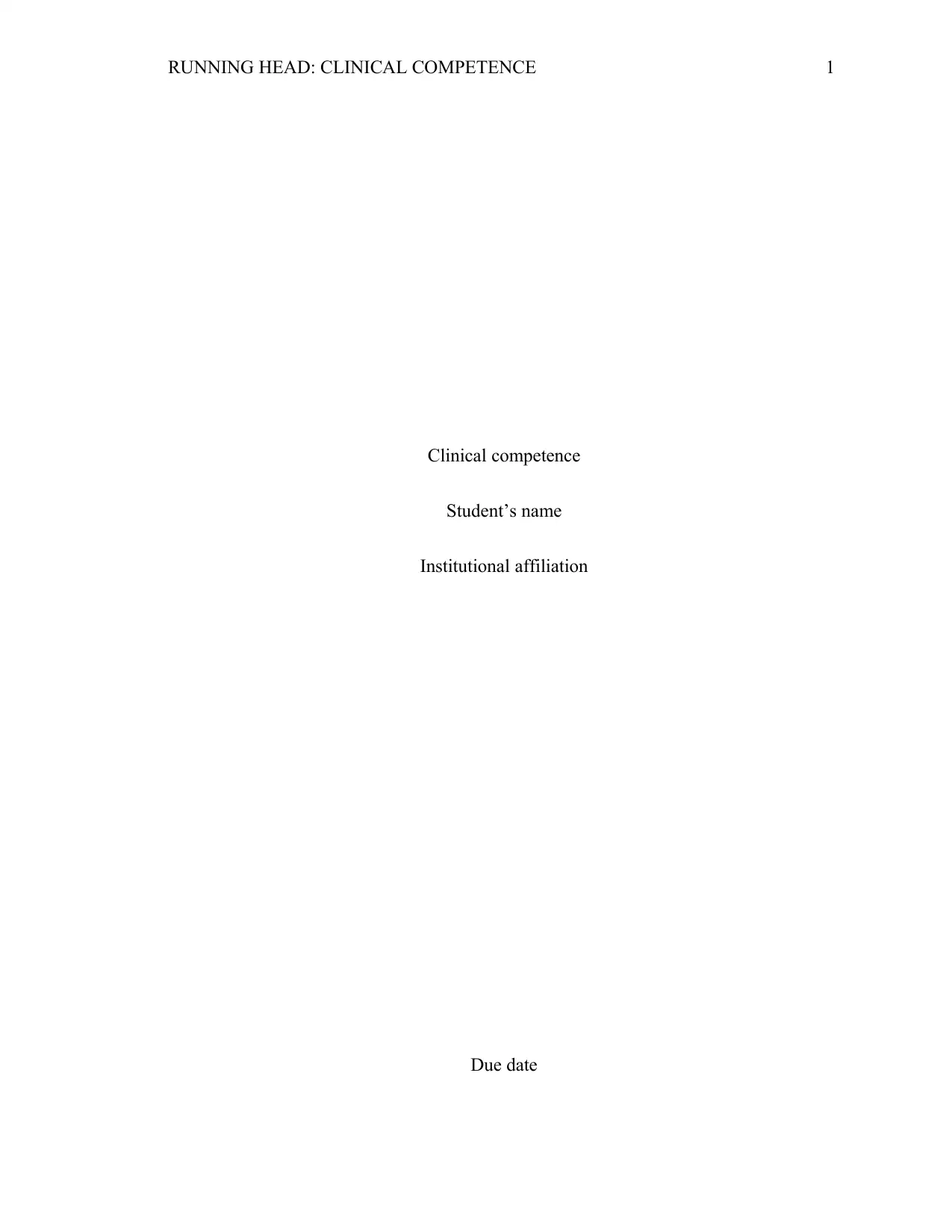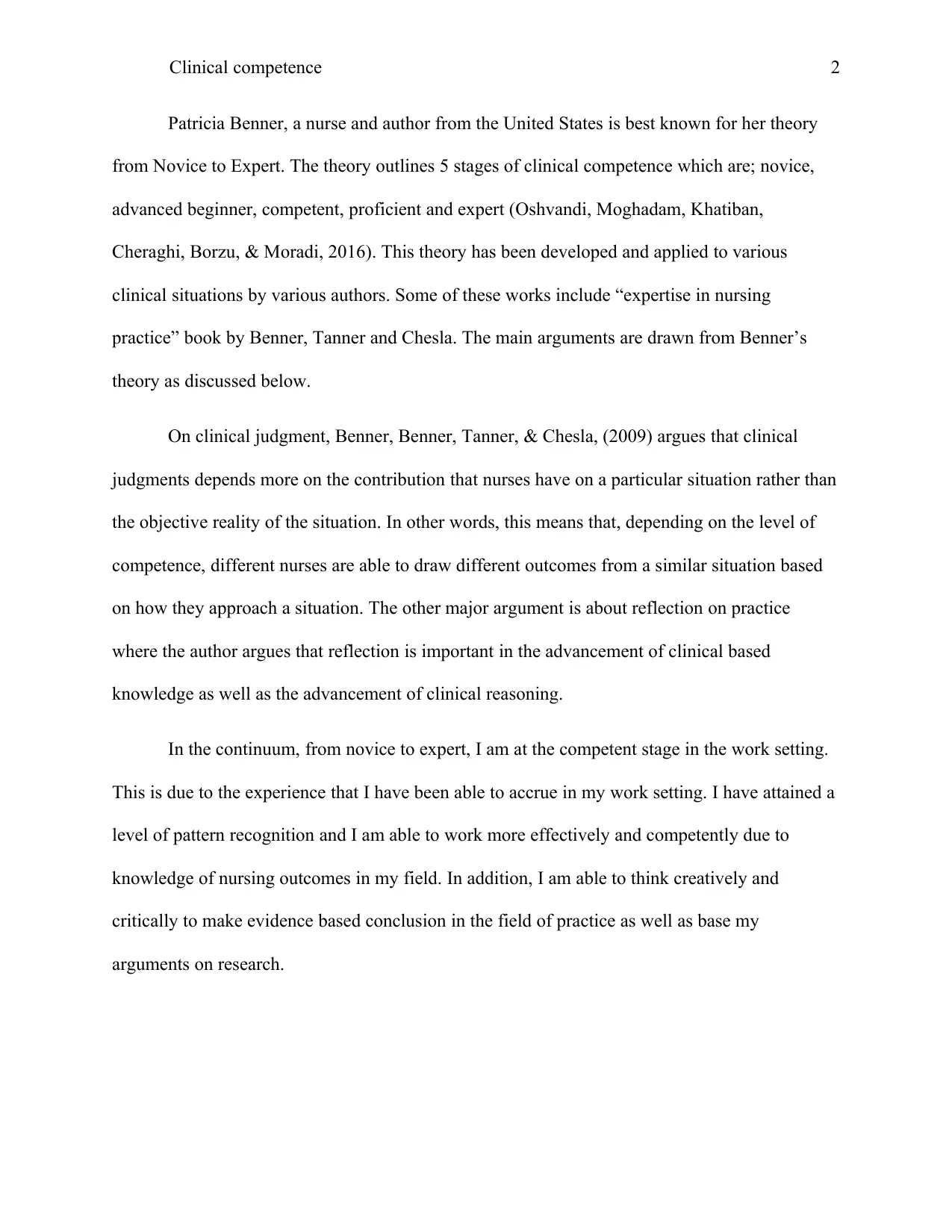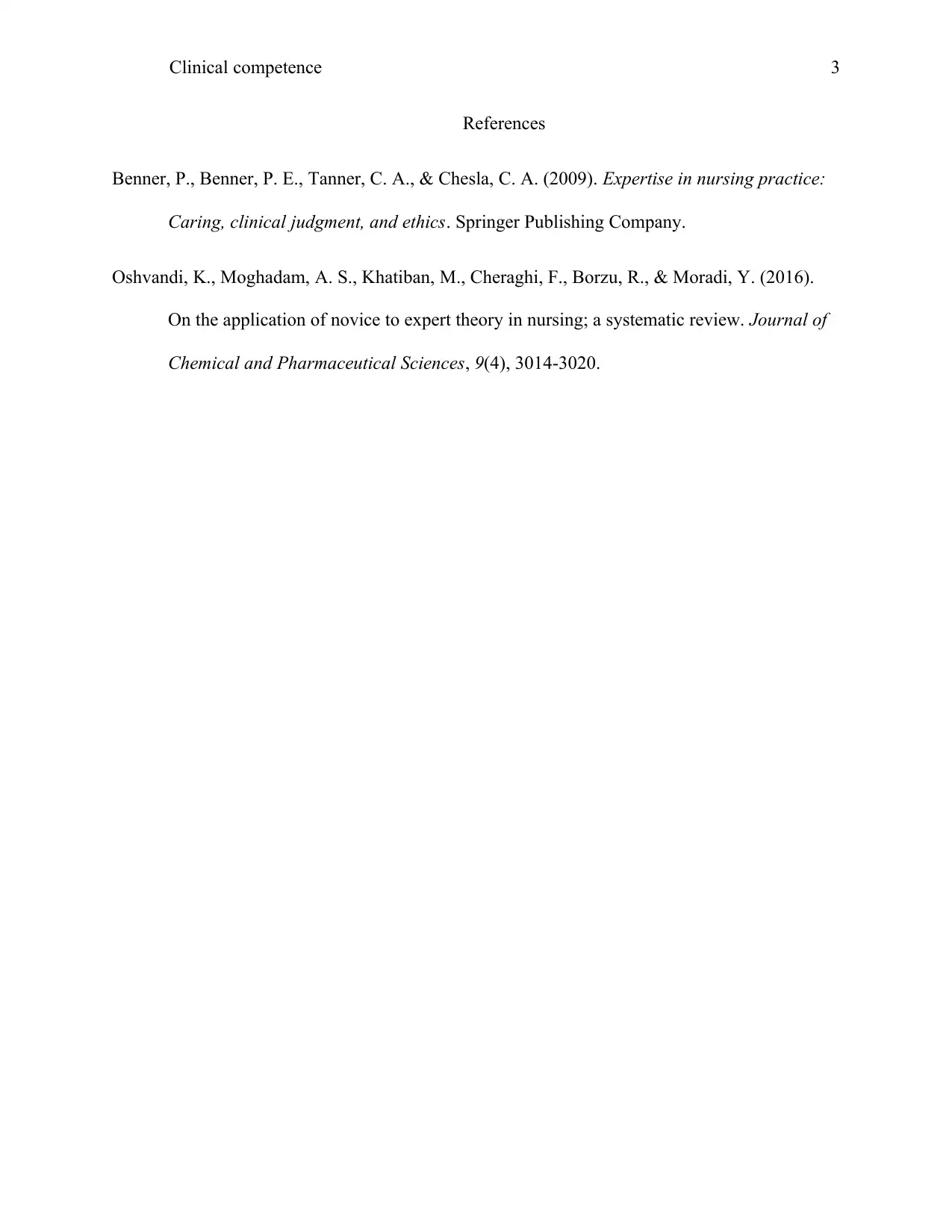Reflecting on Clinical Competence: Benner's Novice to Expert Framework
VerifiedAdded on 2023/03/30
|3
|351
|419
Essay
AI Summary
This essay delves into Patricia Benner's Novice to Expert theory, which outlines five stages of clinical competence: novice, advanced beginner, competent, proficient, and expert. It highlights Benner's arguments on clinical judgment, emphasizing the influence of a nurse's competence level on their interpretation of situations, and the importance of reflection in advancing clinical knowledge and reasoning. The author identifies themselves as being at the competent stage, citing accrued experience, pattern recognition, effective practice, and the ability to think critically and base conclusions on evidence-based research. The essay references Benner's work on expertise in nursing practice and underscores the practical application of the theory in clinical settings.
1 out of 3










![[object Object]](/_next/static/media/star-bottom.7253800d.svg)